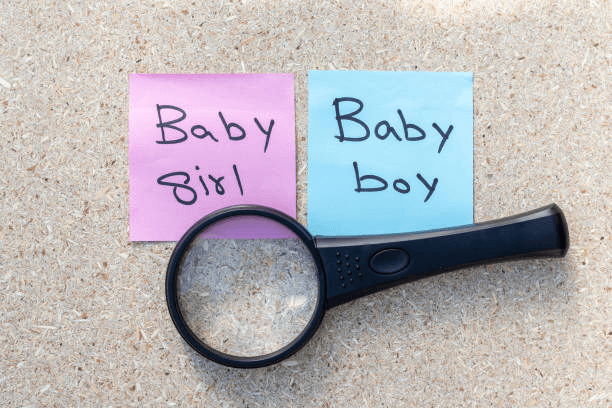What Dads-to-Be Should Know About Pregnancy

Becoming a dad is one of life’s biggest milestones. While much of the focus during pregnancy is naturally on the mother, it’s equally important for dads-to-be to understand what’s happening and how they can support their partner. This guide will help you navigate the journey of pregnancy and prepare for fatherhood, offering insights into what you can expect and how to be the best partner during this transformative time.
1. Pregnancy Is More Than Just Physical Changes
Pregnancy is often associated with physical changes, but it’s important to recognize that there are emotional and mental shifts as well. Moms-to-be experience hormonal fluctuations that can lead to mood swings, heightened sensitivity, and fatigue. It’s not always easy, but as a dad-to-be, your understanding and patience will be a huge help. If you’re wondering why your partner’s appetite may change or why she suddenly can’t stand certain foods, it might be useful to read about what are food aversions and why does appetite change during pregnancy.
2. Morning Sickness Isn’t Just in the Morning
The term “morning sickness” is misleading. Many pregnant women experience nausea at various times of the day, not just in the morning. This can start early in the first trimester and may continue for several months. While there’s not much you can do to stop it, you can help by being supportive. Offer to cook meals that won’t upset her stomach or grab her some crackers when the nausea hits.
3. Her Energy Levels Will Fluctuate
During pregnancy, your partner’s energy levels will likely change a lot. During the first trimester, many women feel exhausted due to the surge in hormones. By the second trimester, energy often returns, but fatigue can creep back in during the third trimester as the baby grows. Understanding these fluctuations and stepping up when she’s feeling low can go a long way.
For more tips on surviving the early months of pregnancy, check out first trimester survival tips.
4. You Can Help With Prenatal Appointments
Being involved in prenatal appointments can be a great way to stay connected to the pregnancy. Whether it’s attending ultrasounds, listening to the baby’s heartbeat, or simply understanding your partner’s health, these moments can be bonding for both of you. It also shows your partner that you’re in this together, helping her feel more supported.
5. Pregnancy Can Impact Mental Health
It’s not uncommon for pregnant women to experience anxiety, mood swings, or even depression. Hormonal changes and the stress of preparing for a new baby can be overwhelming. As a dad-to-be, you can help by listening to her concerns and encouraging her to take care of her mental health. If things get tough, consider suggesting professional support from a counselor or therapist.
6. Your Role During Birth Is Key
The labor room is not just for moms. While you won’t be delivering the baby, your presence is vital. You can help your partner by providing comfort, offering encouragement, and advocating for her needs with medical staff. Some dads feel unsure about what to do during labor, but sometimes just holding her hand or offering reassurance can make all the difference.
7. Prepare for Lifestyle Changes
The arrival of a baby brings big lifestyle changes. Late-night outings, spontaneous trips, or even long work hours may need to be adjusted. Understanding that life is about to get a little more scheduled (especially around naps and feeding times) will help you transition into fatherhood more smoothly.
8. Take an Interest in Baby Prep
Your partner is likely spending a lot of time preparing for the baby’s arrival—shopping for baby clothes, researching the best baby gear, and setting up the nursery. By taking an active interest in these preparations, you’re not only helping to reduce her stress but also showing that you’re invested in this new chapter.
9. Bonding Can Start Before Birth
Many dads feel disconnected during pregnancy because they’re not experiencing the physical changes. But bonding with your baby can start even before birth. Talking to the baby, playing music, or reading to the baby while they’re in the womb can help create a connection. Plus, it’s a great way to support your partner emotionally.
10. Stay Informed About Labor and Delivery
While labor and delivery are ultimately unpredictable, educating yourself about the process can help reduce anxiety. Attend childbirth classes with your partner, learn about the stages of labor, and understand what to expect from your hospital or birthing center. This knowledge will not only prepare you for the big day but also help you feel more involved and confident when the time comes.
11. Postpartum Support is Crucial
Your support doesn’t end when the baby is born. Postpartum recovery can be challenging, and your partner will need help adjusting to life with a newborn. Offering to take on some of the household responsibilities, getting up for night feedings, or simply being there to listen can make a world of difference in those early weeks.
12. Self-Care Matters for You Too
While it’s important to focus on your partner, don’t forget to take care of yourself. Being a supportive partner is hard work, and you’ll need your own outlets for stress relief. Whether it’s talking to other dads, exercising, or taking time for a hobby, make sure you’re maintaining your own mental and physical health during this transition.
Conclusion: Dads-to-Be, You’ve Got This!
Pregnancy is a life-changing experience, and as a dad-to-be, you have an important role to play. From offering emotional support to understanding the physical and mental challenges your partner is facing, your involvement will not only help her but also prepare you for the exciting journey of fatherhood. So take the time to educate yourself, get involved, and embrace the rollercoaster ride of pregnancy. Your support matters more than you know.
For those in the early stages of pregnancy, don’t forget to read up on what are food aversions and why does appetite change during pregnancy and first trimester survival tips to better understand what your partner is going through.
FAQs
1. How can dads-to-be best support their pregnant partners?
By being patient, understanding, and actively involved in the pregnancy journey. Attending prenatal appointments, offering emotional support, and preparing for the baby’s arrival are all key ways to help.
2. What should dads expect during the first trimester?
The first trimester can be tough, with symptoms like fatigue, nausea, and mood swings. Dads should be ready to offer support and help ease the burden wherever possible.
3. Can dads bond with the baby during pregnancy?
Yes, bonding can begin before birth! Talking to the baby, playing music, and participating in prenatal activities can all help create an early connection.
4. What is the dad’s role during labor?
The dad’s role during labor is to provide emotional support, comfort, and advocate for the mother’s needs. It’s important to stay calm and encouraging throughout the process.
5. How should dads-to-be prepare for life after the baby is born?
Dads should be ready for major lifestyle changes, including sleep deprivation and a new family routine. Staying involved and offering help with the baby and household tasks will be key in adjusting to life as a new parent.






